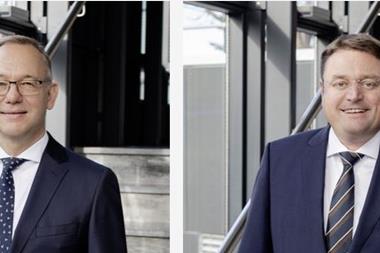Kuehne+Nagel (K+N) is expecting freighter capacity to continue to dominate the airfreight market for the coming quarters, while it also has no concern about reports of high inventory levels in the US.
Speaking after announcing the company's second-quarter results, K+N chief executive Detlef Trefzger was asked what the impact of the return of belly capacity and at the same time rising ocean shipping disruption would have on the use of freighters.
Trefzger said that at the moment the air cargo market was balanced 65% to 35% in favour of freighters and he doesn't expect this to change.
"I don't see a major change in the next couple of months or quarters," he said. "For the reason that now is the peak season for passenger planes, even intercontinental, as the summer vacations are kicking in almost everywhere globally.
"But for the winter season, the belly capacity will be reduced and some of the major markets are not offering a free entry into the country, like China, which also limits the amount of belly capacity into one of our strongest or most important markets."
Trefzger, who will leave the top job on August 1, said he also expected a peak season this year, although he added "how much of a peak season remains to be seen".
Elsewhere, he also said he wasn't too concerned about reports that many US companies are reporting excess inventory levels - restocking of inventories is a process that had been helping to drive air cargo demand.
Trefzger said that while larger retailers were now fully stocked, small- and medium-sized companies would now be looking to build up inventories.
"While the larger retailers became cautious due to the supply chain disruption and have increased their inventory levels, we don't see a major difference because small- and medium-sized accounts all of a sudden start to build up their inventory as well," he said.
He added: "We see a positive outlook for small- and medium-sized enterprises."
Trefzger also said that brands were gaining e-commerce market share from online marketplaces and would need to build up inventories to meet this extra demand.
The air division’s second-quarter net turnover was SFr3.2bn, up 37% from the same period of 2021, earnings before interest and tax (ebit) was SFr401m, 65% up year on year and air volumes improved by 2.7% to 570,000 tonnes.














